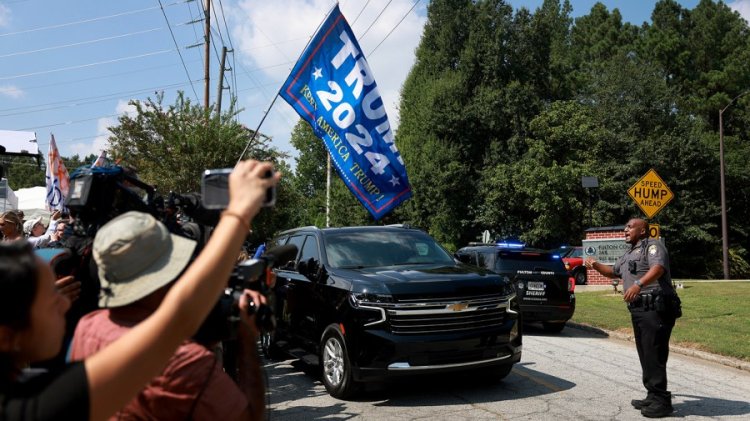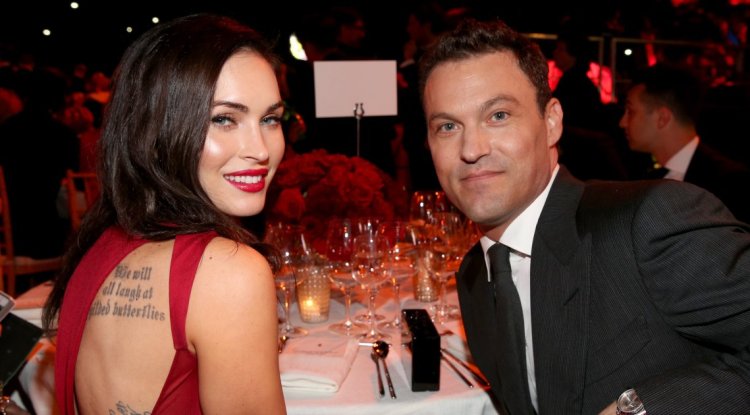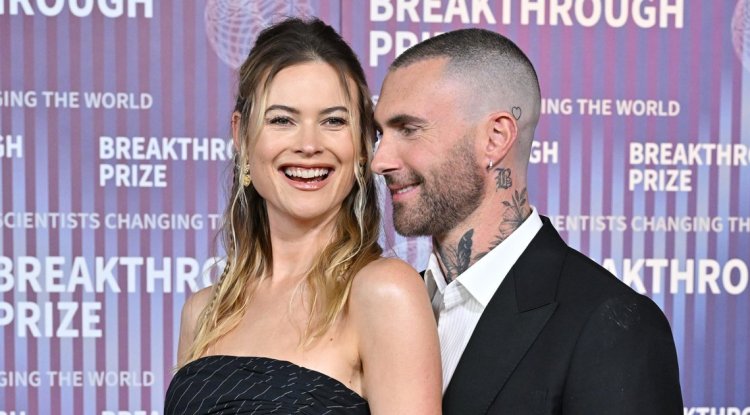Trump allies at center of Jan. 6 cases navigate dueling prosecutions
Dueling election interference cases targeting Donald Trump’s efforts to stay in office after losing the 2020 contest are creating complexities both for prosecutors and five other defendants accused of aiding the former president.Special counsel Jack Smith detailed six co-conspirators in his federal case against Trump, five of whom are now also among the 18 people charged with Trump in Georgia by Fulton County District Attorney Fani Willis (D).It’s an unusual situation in a legal fight already without precedent in history.“It’s not common for there to be parallel federal and state prosecutions concerning the same set of facts,” said Ankush Khardori,a former federal prosecutor specializing in white collar crime.That’s in part because federal prosecutors often ask state and local authorities to stand down from bringing similar cases, Khardori noted, to sidestep issues on everything ranging from timing on the trials to dealing with overlapping witnesses.In this case, Khadori noted, the pro


Dueling election interference cases targeting Donald Trump’s efforts to stay in office after losing the 2020 contest are creating complexities both for prosecutors and five other defendants accused of aiding the former president.
Special counsel Jack Smith detailed six co-conspirators in his federal case against Trump, five of whom are now also among the 18 people charged with Trump in Georgia by Fulton County District Attorney Fani Willis (D).
It’s an unusual situation in a legal fight already without precedent in history.
“It’s not common for there to be parallel federal and state prosecutions concerning the same set of facts,” said Ankush Khardori,a former federal prosecutor specializing in white collar crime.
That’s in part because federal prosecutors often ask state and local authorities to stand down from bringing similar cases, Khardori noted, to sidestep issues on everything ranging from timing on the trials to dealing with overlapping witnesses.
In this case, Khadori noted, the prosecutors and defense will face a much more complicated playing ground.
“There are these complexities,” he added.
At the intersection of the cases are five attorneys who advised Trump in the lead-up to Jan. 6: Rudy Giuliani, John Eastman, Jeffrey Clark, Sidney Powell, and Kenneth Chesebro.
While all five remain unnamed and uncharged in federal court documents, in Georgia they face a broader racketeering case as well as other charges.
The sixth co-conspirator in the federal case, Boris Epshteyn, counsel and senior adviser to Trump, avoided charges from Willis.
However other Trump allies who appear to have dodged any federal charges, such as former White House chief of staff Mark Meadows and former Trump attorney Jenna Ellis, were targeted in the Georgia case.
The lack of additional indictments in the federal case streamlines things for prosecutors who have suggested a Jan. 2, 2024 trial date for Trump.
But the lack of charges for the co-conspirators has fueled speculation over whether they are simply yet to be charged or whether some may still seek to cooperate with prosecutors.
“When you’re thinking about these cases, you always want to think of the smaller cogs as the people that are cooperating because they have the most to gain,” said Evan Gotlob, a former state and federal prosecutor now in private practice.
He said DOJ likely views everyone who isn’t Trump as “low level fruit” in the case.
“They’re such a small piece of the puzzle, but they usually have really good information because they’re included in a lot of the decisions….A lot of the small cogs probably can get out relatively unscathed besides [having] some Truth Social tweets about them, and it makes a lot of sense to try to flip those people,” Gotlob said.
The would-be defendants in the Jan. 6 case have known for months they could be a target in the probe.
Many have been publicly recalcitrant in the wake of the investigation.
Others, like Meadows, have been publicly quiet, fueling speculation he could be cooperating with federal prosecutors.
That’s not the case in Georgia, where Meadows has launched a suit to move the case to federal court and have the charges dismissed.
Is Willis damaging Smith?
Tim Parlatore, a former attorney for Trump in the Mar-a-Lago case who has also represented former New York City police commissioner Bernard Kerik in both probes, said the Georgia case could push those who are communicating with Smith to cease doing so.
“Fani Willis I think has actually done a lot of damage to Jack Smith’s case here,” he said.
“The unfortunate thing for the government is that you have two types of prosecutors that are essentially jockeying for position and hurting each other’s cases.”
Parlatore stopped short of suggesting any in Trump’s orbit are cooperating with prosecutors, but he said those who were “being cooperative” may become more resistant.
“What she did was she effectively sidelined a lot of Jack Smith’s witnesses by indicting them,” he said. “Tremendous strategic blunder.”
Khardori, however, dismissed the idea that the Georgia indictment does much to change the underlying dynamics of how DOJ proceeds with the yet-to-be-indicted co-conspirators.
He said the failure to indict likely reflects that “Smith wants to keep this case as tight as possible to try to get it to trial as quickly as possible.”
Smith’s team has five years from the date of the offense to bring any charges and may well do so on the timeline it sees fit.
“Any competent defense lawyer representing any of these people should have advised them that they had significant federal criminal exposure years ago,” Khardori said of the federal co-conspirators.
“What, if anything, does this do to materially change the unindicted folks incentives in the federal case? I just don’t think it changes those incentives. They shouldn’t be as worried today as they were worried a month ago that they’ll be charged by the federal government.”
More complications
But additional complexities could surface as the cases come to trial.
“For Smith and Willis it’s a lot of the same witnesses,” Gotlob said, adding that prosecutors from both teams will need to begin coordinating.
“So that’s all discoverable for their testimony. So, let’s say there’s a cooperator in Smith’s case and they testify for three days of testimony, all that’s discoverable. So their testimony down the road in Willis’s case better be pretty much close to identical or they’re going to get destroyed on cross examination.”
Khardori said the trove of past statements – including those made to the Jan. 6 committee now all shared publicly, will be pored over by Trump’s attorneys.
“Any testimony they provide is going to be open to claims that there’s an inconsistency or that they changed their story, and those aren’t necessarily winning arguments… but it’s needless headaches for prosecutors,” he said.
“If you’re Trump’s lawyers, you would want to compile as comprehensive a set of prior statements on the part of government witnesses that you possibly can because…they are going to want to mine that for any consistencies that they could use to impeach these witnesses at trial.”
The relationship among the co-defendants could also be strained.
In one of the filings in Meadow’s bid to remove his case to federal court he noted another defendant in the case would soon file a similar motion but asked the judge not to delay consideration of his own matter.
“Mr. Meadows has articulated grounds for seeking removal unique to Mr. Meadows that should be considered unencumbered by different issues potentially raised by different defendants,” his attorney wrote in the Friday court filing.
Clark and David Shafer, the former Georgia Republican Party chair accused of assembling false electors, would later file motions to remove their case to federal court.
And in Georgia courts, Chesebro filed a motion for a speedy trial, a move that garnered immediate pushback from Trump, a nod to other legal battles in which he has routinely relied on seeking to delay matters.
While Chesebro’s trail has been moved to Oct. 23, the rest have yet to be determined, though the difficulties of handling a case with 18 defendants will likely slow the case, easily bumping it past the six-month window in which Willis hoped to go to trial.
“I know [the Georgia case is] the shiny object last week and will continue to be this week. But my expectation is that it will fall to the bottom of the list of trials before November of next year,” Khardori said.
But he said DOJ could have dodged the need to navigate its case alongside the corresponding case by launching its investigation into high-level actors much sooner rather than spend its initial energy on those who ransacked the Capitol.
“It could have opened a serious criminal investigation, more or less immediately after Biden took office or Garland took office in March of 2021. They could have telegraphed that it was going to be a serious high-level inquiry,” he said, referring to Attorney General Merrick Garland.
“To the extent that there were state prosecutors, including in Georgia, that were considering investigating the same conduct, they could have approached them and said, ‘Look, we’re handling this. We don’t think your resources are necessary here.’”
For the latest news, weather, sports, and streaming video, head to The Hill.
What's Your Reaction?






















